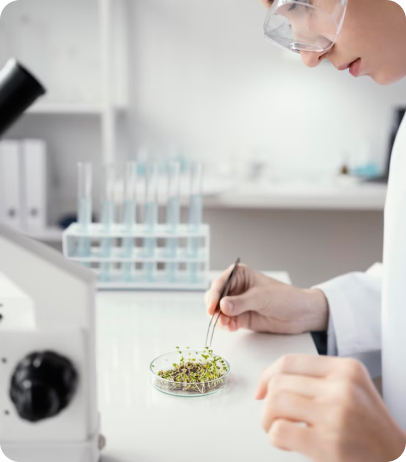OVERVIEW
Lifescience and translational research studies living organisms to translate discoveries into practical applications. By integrating microbiology, infectious diseases, and molecular biology, this field enhances our understanding of disease mechanisms and drives the development of innovative diagnostics and therapies.
Bridging laboratory research and clinical practice, translational research advances personalized medicine through biomarker identification and therapeutic targets. This collaboration ensures that advancements in public health and infectious diseases yield meaningful benefits for patients.

OUR PRODUCT RANGE
Molecular Biology & Genomics
Molecular biology and genomics diagnostics uncover the genetic and molecular underpinnings of health and disease, enabling precise detection and characterization of conditions at their source. Techniques like PCR, next-generation sequencing,...
Biochemistry & Proteomics
Biochemistry and proteomics diagnostics dive into the fundamental machinery of life, decoding how proteins and metabolites drive health and disease. By mapping these molecular interactions, scientists can uncover hidden signatures...
Cell Culture & Analysis
Cell culture and analysis allow scientists to recreate complex biological environments in the lab, offering a controlled window into how cells grow, communicate, and respond to stimuli. This work is...
OUR BRANDS

.jpg)








